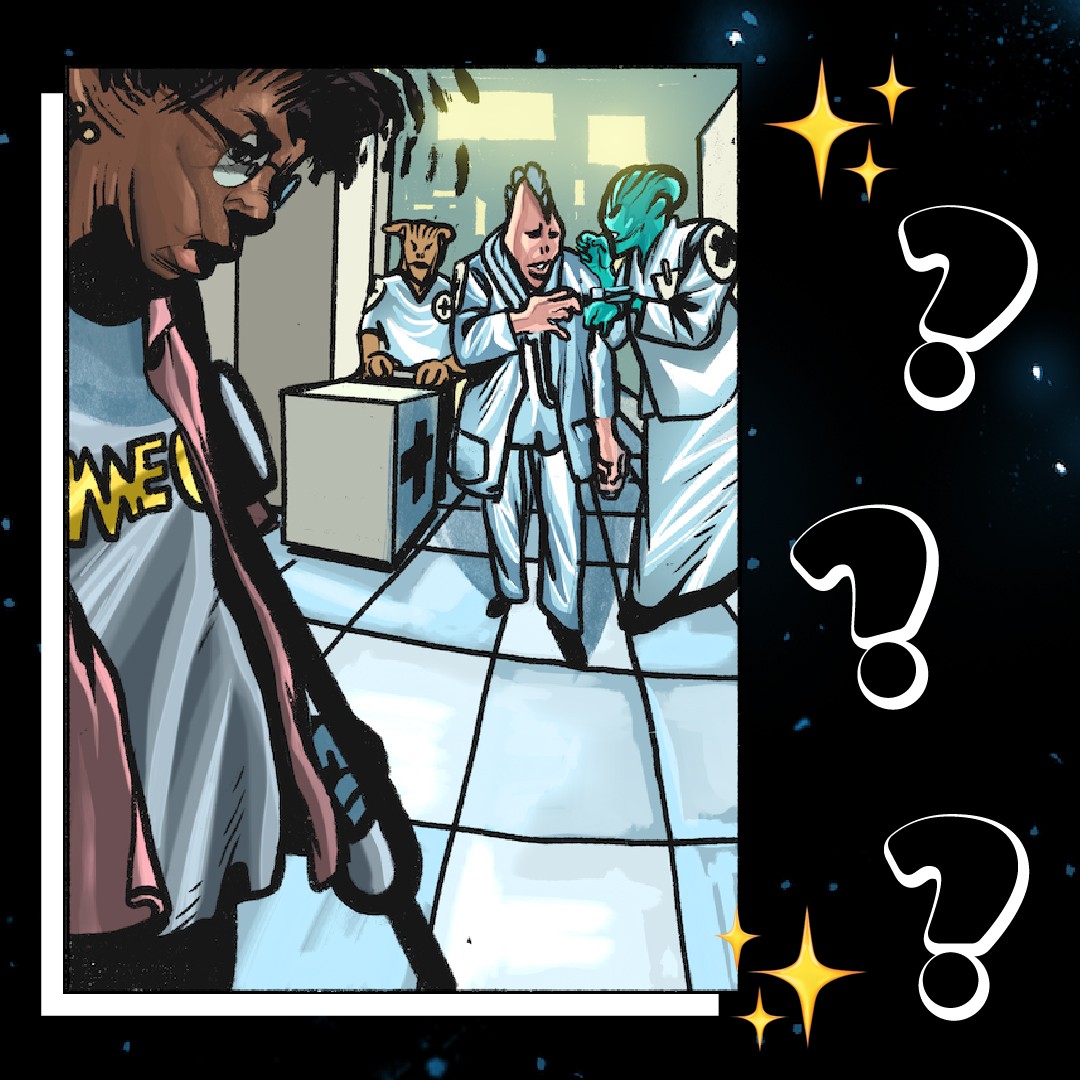COVID-19 inspired webcomic praised by top scientists and policy makers
A collaboration between comic book creators, academics and young people around the world has resulted in a 9-part Webcomic, the final chapter of which has been published this month.
Called PLANET DIVOC-91 and kickstarted with seed funding from the University of Manchester and other funders, the comic is an allegorical sci-fi story which reflects on the experience of young people during the pandemic.
The work by young people from South Africa, India and UK was praised by luminaries including Professor Sir Patrick Vallance, Chief Scientific Adviser to the Government and Professor Dame Anne Johnson, President of the Academy of Medical Sciences.
Project instigator and co-lead, Dr Bella Starling, honorary researcher at The University of Manchester and Director of Vocal at Manchester University Hospitals NHS Foundation Trust said: “Planet DIVOC-91 demonstrates the amazing possibilities that can happen when young people, researchers and creatives work together. Through this project young people’s voices have been directly heard by senior scientists and policy makers. The collaborative effort means that everyone has learned from each other and this has helped to bridge gaps between research communities and wider audiences. The creative outputs from this project have brought complex research topics into an accessible and engaging format.”
The young people in the project contributed presented to the UK’s Independent Sage, contributed to Academy of Medical Sciences working groups and expert meetings, and shared their views with The Lancet. They covered subjects including on adolescent wellbeing and climate change
At the start of the story earth stands on the brink of destruction with a huge asteroid hurtling towards it.
The only chance of survival is on Planet Divoc-91, a giant ‘safe house’, full of Galaxian refugee waifs and strays. But that too is now threatened with a mysterious virus.
Professor Dame Anne Johnson, President of the Academy of Medical Sciences said: “The young adults working on this comic have opened my eyes to how tough the last year has been for them. Hearing from them in their own words was really impactful for me personally.
“The voices of young adults have been severely lacking from the conversations about the wider effects of COVID-19. This group have worked so hard to add to that narrative, explaining how they are part of a generation that have missed out on so much, including all the important social interactions that we all take for granted.”
Planet DIVOC-91 demonstrates the amazing possibilities that can happen when young people, researchers and creatives work together. Through this project young people’s voices have been directly heard by senior scientists and policy makers. The collaborative effort means that everyone has learned from each other and this has helped to bridge gaps between research communities and wider audiences. The creative outputs from this project have brought complex research topics into an accessible and engaging format
Conor Giblin, Young Editorial Team, UK said: "Planet Divoc-91 helped me to make sense of the science surrounding COVID-19 at a time when there was a lot of fear and confusion. It reassured me that other people felt the same way and gave me an opportunity to learn and combat misinformation, whilst also improving my journalism skills. It was a challenge to write about scientific concepts and social issues, but it was an enjoyable one and now I know that I'm capable of writing about a variety of different topics."
Professor Sir Patrick Vallance, Chief Scientific Adviser to the Government of the United Kingdom said: “ “Engaging young adults about their views on the pandemic is very important so I am pleased to see this creative project. This innovative project is an inspired way to connect with young adults, explore their views on the coronavirus pandemic and help understand what it means for them. I was delighted to have the opportunity to talk with some of the young adults involved in the project and was so impressed by their questions and comments. I thoroughly enjoyed our conversation and seeing and understanding how young adults tackle the issues of a fictional pandemic can help scientists, doctors and governments around the world better understand how to respond to the very real coronavirus pandemic.”
The project is managed by Vocal and Sara Kenny (Wowbagger Productions) in the UK with project teams working directly with young adults in India and South Africa.
Planet DIVOC-91 has been funded by NIHR Manchester Biomedical Research Centre, the NIHR Manchester Clinical Research Facility, The Academy of Medical Sciences, The Science and Technology Facilities Council, Royal Society of Chemistry and The University of Manchester through the Wellcome Institutional Strategic Support Fund award. The global reach of the project has been possible by funding from Wellcome.



